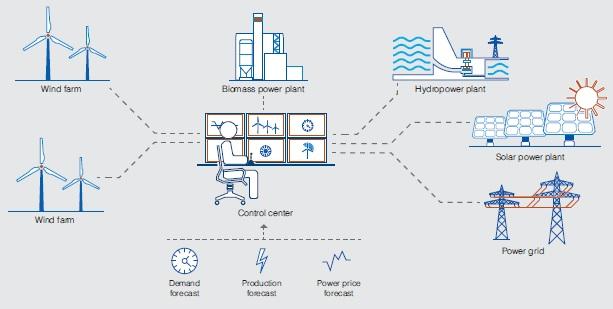
Funding Program Launched to Support Energy Efficiency in Affordable Housing Buildings
![]()
Introduction
The Mayor’s Office of Housing (MOH) and Mayor Michelle Wu have announced the launch of a grant program aimed at supporting deep green energy retrofits (GERs) and decarbonization efforts in existing affordable housing buildings. This initiative aligns with the Sustainable Development Goals (SDGs) and the City of Boston’s commitment to the Building Emissions Reduction and Disclosure Ordinance (BERDO), which aims to reduce greenhouse gas emissions in large buildings to net zero by 2050.
Through this grant program, the City of Boston seeks to create cleaner and more energy-efficient affordable housing units, promoting climate action, livability, and justice in the community.
Grant Program Details
The grant program will provide funding for energy assessments in income-restricted residential buildings. Building owners of affordable housing can apply for grants of up to $10,000. These funds will be used for comprehensive energy assessments, enabling building owners to evaluate the current performance of their buildings and develop strategies for significant energy savings and carbon emission reductions.
Completing these assessments will not only contribute to a greener environment but also enhance the safety, comfort, and sustainability for residents. The assessments will serve as a roadmap for building owners to comply with BERDO requirements and qualify for additional funding to implement energy retrofit measures.
Quotes
“Creating clean homes and improving the health of our communities must be at the center of our climate action,” said Mayor Michelle Wu. “I’m grateful to the Mayor’s Office of Housing for their leadership in our Green New Deal efforts to make Boston’s buildings greener and more energy efficient.”
“By supporting comprehensive energy assessments, we are empowering building owners to make informed decisions and take meaningful steps towards a sustainable and healthier future,” said Sheila Dillon, Chief of Housing. “This program aligns with our commitment to BERDO and reinforces our dedication to equity, affordability, and environmental stewardship.”
“We firmly believe that the residents of affordable housing in Boston should be the first to experience the transformative benefits of the Green New Deal,” said Green New Deal Director Oliver Sellers-Garcia. “Our commitment to this program showcases our strategic utilization of funding to make targeted investments that enhance quality of life and promote equity.”
Application Process
The City anticipates that the comprehensive energy assessments can be completed within 3-6 months of the grant award. Building owners can apply for grants through the Mayor’s Office of Housing. The Office will continue to accept applications on a rolling basis.
Conclusion
This funding program is part of the City’s efforts to embed the Green New Deal principles throughout its initiatives, creating healthier and cleaner communities for all residents. By investing in energy efficiency and decarbonization measures, Boston aims to mitigate carbon emissions from the building sector and improve housing affordability, promoting environmental and economic justice.
SDGs, Targets, and Indicators
-
SDG 7: Affordable and Clean Energy
- Target 7.3: By 2030, double the global rate of improvement in energy efficiency
- Indicator 7.3.1: Energy intensity measured in terms of primary energy and GDP
-
SDG 11: Sustainable Cities and Communities
- Target 11.6: By 2030, reduce the adverse per capita environmental impact of cities, including by paying special attention to air quality and municipal and other waste management
- Indicator 11.6.1: Proportion of urban solid waste regularly collected and with adequate final discharge out of total urban solid waste generated, by cities
-
SDG 13: Climate Action
- Target 13.2: Integrate climate change measures into national policies, strategies, and planning
- Indicator 13.2.1: Number of countries that have communicated the strengthening of institutional, systemic, and individual capacity-building to implement adaptation, mitigation, and technology transfer, and development actions
Table: SDGs, Targets, and Indicators
| SDGs | Targets | Indicators |
|---|---|---|
| SDG 7: Affordable and Clean Energy | Target 7.3: By 2030, double the global rate of improvement in energy efficiency | Indicator 7.3.1: Energy intensity measured in terms of primary energy and GDP |
| SDG 11: Sustainable Cities and Communities | Target 11.6: By 2030, reduce the adverse per capita environmental impact of cities, including by paying special attention to air quality and municipal and other waste management | Indicator 11.6.1: Proportion of urban solid waste regularly collected and with adequate final discharge out of total urban solid waste generated, by cities |
| SDG 13: Climate Action | Target 13.2: Integrate climate change measures into national policies, strategies, and planning | Indicator 13.2.1: Number of countries that have communicated the strengthening of institutional, systemic, and individual capacity-building to implement adaptation, mitigation, and technology transfer, and development actions |
Analysis
The article discusses a grant program launched by Mayor Michelle Wu and the Mayor’s Office of Housing (MOH) aimed at supporting deep green energy retrofits (GERs) and decarbonization efforts in existing affordable housing buildings. This initiative aligns with the City of Boston’s commitment to the Building Emissions Reduction and Disclosure Ordinance (BERDO), which sets requirements for large buildings to reduce their greenhouse gas emissions gradually to net zero by 2050.
Based on this information, the following SDGs, targets, and indicators can be identified:
SDG 7: Affordable and Clean Energy
This SDG is addressed as the grant program aims to support energy efficiency measures and decarbonization efforts in affordable housing buildings.
- Target 7.3: By 2030, double the global rate of improvement in energy efficiency – The grant program aims to facilitate significant reductions in energy consumption and carbon emissions in affordable housing buildings, contributing to improved energy efficiency.
- Indicator 7.3.1: Energy intensity measured in terms of primary energy and GDP – The comprehensive energy assessments funded by the grant program will enable building owners to evaluate the current performance of their buildings and develop strategies for substantial energy savings and carbon emission reductions, thus indirectly measuring energy intensity.
SDG 11: Sustainable Cities and Communities
This SDG is connected as the grant program supports efforts to reduce the adverse environmental impact of cities and improve the sustainability of affordable housing buildings.
- Target 11.6: By 2030, reduce the adverse per capita environmental impact of cities, including by paying special attention to air quality and municipal and other waste management – The grant program indirectly contributes to reducing the environmental impact of cities by promoting energy efficiency and decarbonization in affordable housing buildings.
- Indicator 11.6.1: Proportion of urban solid waste regularly collected and with adequate final discharge out of total urban solid waste generated, by cities – While not directly mentioned in the article, the comprehensive energy assessments may identify opportunities for waste reduction and management improvements in affordable housing buildings, indirectly impacting this indicator.
SDG 13: Climate Action
This SDG is addressed as the grant program aligns with the City of Boston’s commitment to reducing greenhouse gas emissions and taking climate action.
- Target 13.2: Integrate climate change measures into national policies, strategies, and planning – The grant program is part of the City’s efforts to integrate climate change measures into its policies and strategies by supporting energy efficiency and decarbonization in affordable housing buildings.
- Indicator 13.2.1: Number of countries that have communicated the strengthening of institutional, systemic, and individual capacity-building to implement adaptation, mitigation, and technology transfer, and development actions – While not directly mentioned in the article, the grant program can be seen as a capacity-building measure to implement adaptation and mitigation actions in the affordable housing sector, indirectly contributing to this indicator.
Behold! This splendid article springs forth from the wellspring of knowledge, shaped by a wondrous proprietary AI technology that delved into a vast ocean of data, illuminating the path towards the Sustainable Development Goals. Remember that all rights are reserved by SDG Investors LLC, empowering us to champion progress together.
Source: boston.gov

Join us, as fellow seekers of change, on a transformative journey at https://sdgtalks.ai/welcome, where you can become a member and actively contribute to shaping a brighter future.






